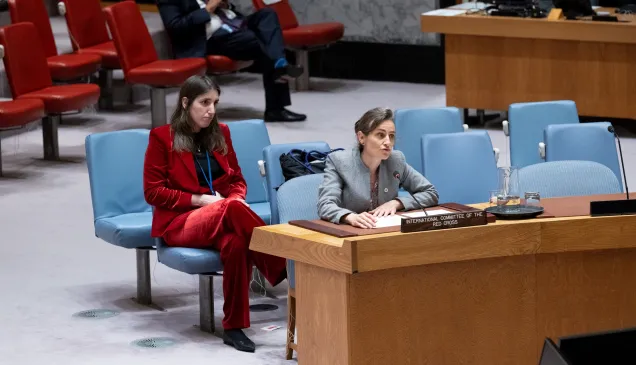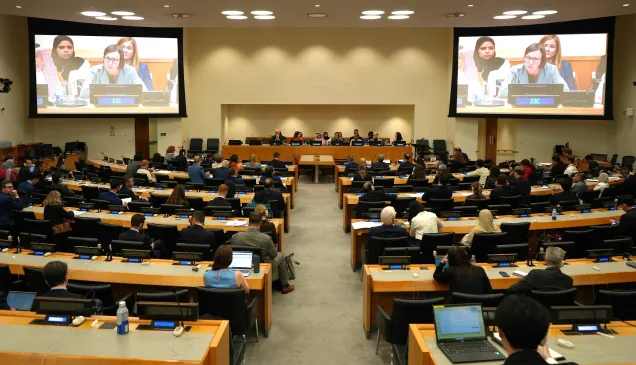New York (ICRC) – The building momentum in support of a world free of nuclear weapons is a hopeful sign for the future of humanity as more States on Thursday signed a landmark treaty prohibiting the most dangerous weapons on Earth.
Nuclear weapons, which unleash catastrophic humanitarian consequences, cannot be viewed as instruments of security, Peter Maurer, president of the International Committee of the Red Cross (ICRC), said at the signing and ratification of the Treaty on the Prohibition of Nuclear Weapons (TPNW) at the United Nations on Thursday.
"Many nations have spent vast sums of money in pursuit of the theories of 'nuclear deterrence' and 'mutually assured destruction,' yet ultimately they have created an unstable balance of fear that continues to threaten the entire human species," Maurer said. "Not since the end of the Cold War has it been more urgent to call attention to catastrophic consequences and fundamental inhumanity of nuclear weapons. We must signal in a clear and unambiguous manner that their use, under any circumstances, would be unacceptable in humanitarian, moral and legal terms."
Maurer commended the States who signed the Treaty and encouraged those States to ratify it. The Red Cross and Red Crescent family is ready to assist States in that effort.
The international community would be unable to respond to humanitarian needs resulting from the use of nuclear weapons. Widespread radioactive illnesses, a decline in food production, and the pure scale of destruction and contamination these weapons would cause would make any response insufficient.
"The continued existence of nuclear weapons and the growing risk of their use make ongoing conflicts significantly more dangerous and increase the risk of a global conflagration from which there will be no protection," Maurer said. "Weapons with catastrophic humanitarian consequences cannot credibly be viewed as instruments of security."
The Treaty on the Prohibition of Nuclear Weapons prohibits nuclear weapons on the basis of international humanitarian law and makes clear that any development, production testing, stockpiling, use or threat to use nuclear weapons is unacceptable. It assists victims of nuclear weapon use and testing and facilitates the remediation of contaminated environments. It also provides pathways for adherence by all States, including nuclear-armed States, so as to bring about the elimination of nuclear weapons.
Following the ceremony, 79 states have signed and 32 have ratified the Treaty. The TPNW will enter into force with signature and ratification by 50 States.
"It is now crucial to make the Treaty on the Prohibition of Nuclear Weapons come to life as a new norm of international humanitarian law. We must spare no effort to ensure the broadest possible adherence to this treaty," Maurer said.
For more on the ICRC campaign to prohibit nuclear weapons: notonukes.org
For the full remarks to the TPNW signing ceremony: icrc.org



